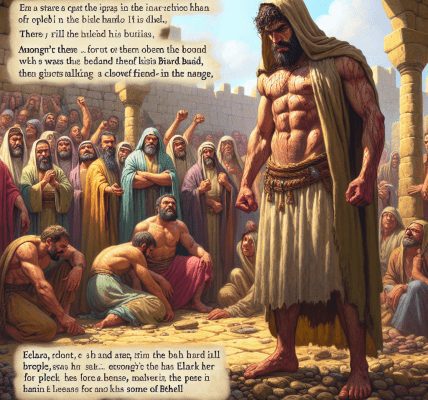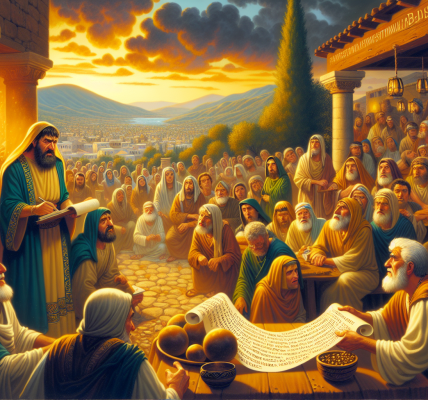**The Cry in the Darkness: A Story Inspired by Psalm 88**
The night was thick and heavy, like a suffocating shroud draped over the soul of Heman the Ezrahite. He lay on his bed, his body weak, his spirit crushed beneath the weight of a sorrow too deep for words. The flickering oil lamp cast long, trembling shadows on the walls of his small chamber, as if even the light itself struggled to push back the darkness that enveloped him.
For months, Heman had known no relief. Once, he had been a singer in the house of the Lord, his voice lifted in praise among the sons of Korah. But now, his songs had turned to groans, his melodies to lamentations. Sickness had seized him, a relentless affliction that drained his strength and left him a mere shadow of the man he once was. His friends had come at first, speaking words of comfort, urging him to trust in the Lord. But as his suffering dragged on, their visits grew fewer, their assurances more hollow, until at last, they stayed away altogether.
Alone in the silence, Heman wrestled with the terror of abandonment. Had God turned His face away? Had his prayers fallen on deaf ears? The words of his ancestors whispered in his memory—stories of deliverance, of the Lord who heard the cries of the afflicted. Yet here he was, sinking deeper into the pit, with no hand reaching down to pull him out.
With trembling fingers, he reached for a scrap of parchment and a reed pen. The ink was thin, his hand unsteady, but the anguish in his heart demanded expression.
*”O Lord, God of my salvation, I cry out to You day and night. Let my prayer come before You; incline Your ear to my cry!”*
His words spilled forth like blood from a wound, raw and unfiltered. He held nothing back.
*”For my soul is full of troubles, and my life draws near to the grave. I am counted among those who go down to the pit; I am like a man without strength.”*
The memories of better days taunted him—days when he had stood in the courts of the temple, his voice rising with the morning sacrifice, his heart alight with faith. But now, even that seemed like a distant dream.
*”You have put me in the lowest pit, in darkness, in the depths. Your wrath lies heavy upon me, and You have afflicted me with all Your waves.”*
Was this punishment? Had he sinned in some way he did not understand? He searched his heart but found no answer, only the gnawing fear that perhaps God had cast him away forever.
*”You have taken my companions from me; You have made me an abomination to them. I am shut up, and I cannot escape.”*
A cold draft slipped through the cracks of his chamber, extinguishing the lamp. In the sudden blackness, Heman shuddered. Was this how it would end? Forgotten, forsaken, swallowed by the darkness?
Yet even in his despair, one truth remained—he still cried out to God. Though he felt abandoned, he still reached for the Lord. Though he saw no answer, he still spoke his grief. And in that act of raw, desperate prayer, there was a flicker of something—not hope, not yet, but the stubborn refusal to let go of God, even when God seemed to have let go of him.
*”O Lord, I have called daily upon You; I have stretched out my hands to You.”*
His voice was a whisper now, weak but unyielding.
*”But to You I have cried out, O Lord, and in the morning my prayer comes before You.”*
The night dragged on, endless and oppressive. But somewhere beyond the darkness, beyond the silence, Heman clung to the faintest belief that the God who had seemed to abandon him was still listening. And though no deliverance came that night, though the dawn brought no sudden healing, his cry itself became a testimony—a raw, aching psalm of a man who would not stop calling out, even when heaven itself seemed silent.
For even in the deepest pit, even in the darkest night, the cry of the suffering is still a cry to God. And God, in His time, in His way, hears.




